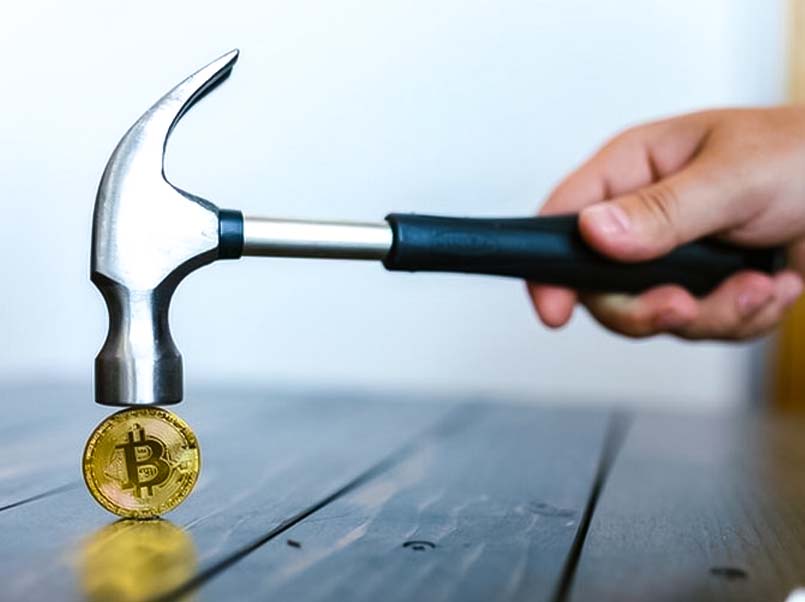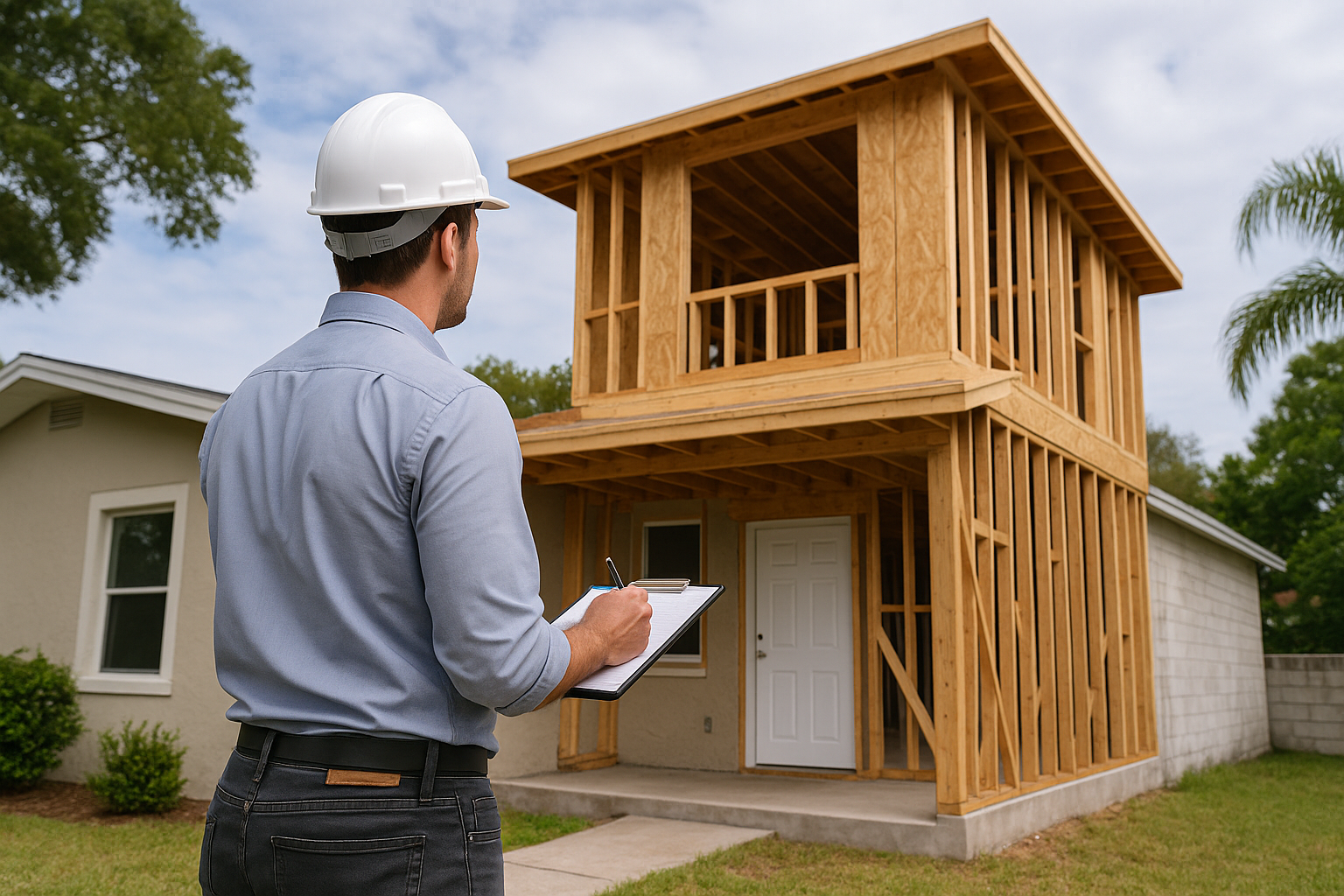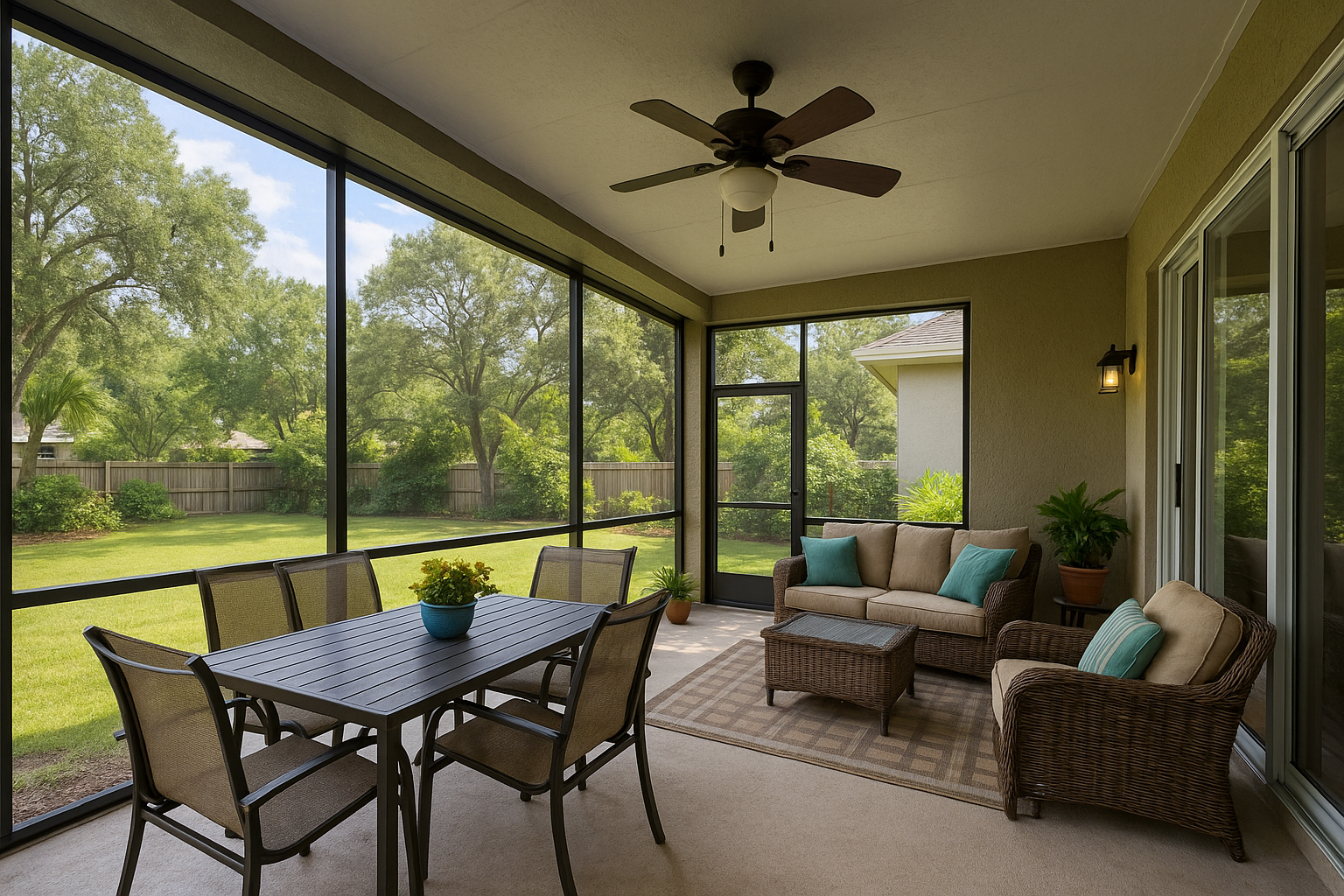By using our website, you agree to the use of cookies as described in our Cookie Policy
a
Rss Feed
Things to be aware of when buying a house with non-permitted work
Dream homes, we all dream of them. They are in the perfect neighborhood, which has the ideal mix of amenities that we want. The home itself looks beautiful from the outside and has an interior to match. The area plan of the house is just right; the size is just right; the rooms are just right. You feel like Goldilocks, all giddy and content. After a long search, you have finally found it! To boot it all off, the kitchen has been recently remodeled, and the house has a brand new deck. What more could you ask for? As it turns out, there is one thing. Permits. See, in our clumsy metaphor, where you are Goldilocks, the three bears are the lenders, an insurance company, and the local government. There are certain things to be aware of when buying a house with unpermitted work. Let's take a look.
The Three Risks
Three bears, three risks, quite the coincidence, is it not? Still, the main thing you need to know is that buying a home with unpermitted work is, indeed, a risk. Why do they even exist? The answer is simple. We all understand that there are many notable benefits of home additions and remodeling, and we know people want to lower costs. They will perform the work on their own if they can, which means without professional contractors and the needed paperwork.
In most cases, any real estate agent worth their salt will tell you not to buy. However, if you threw caution to the wind, signed the purchase agreement, and bought the house, you need to be aware of the possible consequences. The main problem is, in most cases, all liabilities will become yours to handle. Here are the three main issues you could encounter.
1. You May Need to Acquire the Needed Permits
Rules are meant to be broken. Some broken rules could end up breaking the bank. With the help of statetostatemove.com, you have moved into your new home. This is all good and fine, but once you settle in, you may be required to do what the previous owner should have done: acquire the needed permits. Retroactive permitting will be enforced if city inspectors find out about any projects not done up to code and without the necessary permits. It doesn't stop there. If these renovations were extensive, well, it means the value of your home does not match up to the one previously disclosed. A higher value indicates higher taxes. That could also entail paying back taxes. Anything that someone has failed to pay has this nasty tendency to also involve interest and penalties. Those financial obligations are starting to heap up.

2. Your Insurance Company Will Have Something to Say...and it Won't be Anything Positive
Imagine the previous homeowners installed some new exterior windows. Doesn't sound like much of a problem, does it? Well, it can be if the windows are not doing their job correctly. The fact that the previous owners installed them means the product warranty has been, symbolically, thrown out the window. This is just the tip of the iceberg, though. Imagine this; a problem arises due to some faulty wiring, which was, of course, also installed by the previous owners. This wiring starts a fire, and the damage is extensive. You turn to your insurance company, which turns your attention to the fact that this is unpermitted work. They have no obligation to cover these damages. Any injuries sustained in a non-permitted part of the house will have the same result. Those potential costs sure are stacking up.
3. Tear Down The Wall
Why yes, that is indeed a Pink Floyd reference; thank you for noticing! The final potentially costly repercussion could be the need to remove the offending part of the home. Depending on where you live, you may only need to tear down and rebuild the same part. In both cases, it’s another financial hit. A way to mitigate part of the costs is to see if the previous owner built the additions up to code. Also, you can check what you need to rectify so you can ask for a permit. There are many tips you can follow to hire a contractor who can solve all these issues. Still, if there is one point we are trying to get across, it's that you need to understand what additional obligations you could be taking on when buying this kind of property. Those costs really are piling up.

Lesser-Known Problems
Unfortunately, the fun doesn't stop there. There are certainly other things you need to be aware of when buying a house with unpermitted work. Even though the following problem is not as likely to pop up, you will need to be aware of it to make an informed decision. In some rare cases, mortgage companies could ask for the loan to be repaid immediately. They can do this if they find out you knowingly purchased a house that has unpermitted additions.
There is another possibility: the appraisal could be lower than expected. This could happen because the added, unpermitted square footage was not taken into account. It's the scenario everyone wants to avoid. Your offer is accepted, but the sale falls through, as the lender is no longer willing to approve the loan.
Waterfront Homes are Beautiful but Hide a Darker Side
There is one more situation we would like to alert you of, one affecting coastal areas. Having to file for permits is a chore. Having to deal with entirely prohibited work is a nightmare. Situations have arisen in this area where parts of the house are listed as living areas, even though they are evidently not that. They can be adapted and turned into something useful, but it is illegal. More so than others, waterfront homes tend to suffer from these bonus areas that are only there to justify the high asking prices and cause problems down the line. If you are discovered, it will adversely affect your future selling price, and, to top it all off, you still have to remove all of the unpermitted and illegal work. Remember what we have mentioned about the transfer of liability? Yeah, be careful not to fall into such a trap.
The Conundrum of Future Sales
While the initial purchase may seem worthwhile, given a tempting discount or the promise of your dream location, remember that the unpermitted work might haunt you when it's your turn to sell. While it's true that many buyers prioritize location, amenities, or the charm of a home, savvy buyers will be wary of properties with non-permitted modifications. They, too, just like you, would have to weigh the risks of taking on a home with potential undisclosed issues. This could lead to prolonged periods on the market, price reductions, or the potential for deals to fall apart after inspections.
Neighborhood Implications
While we've addressed the direct impacts on the buyer, one often overlooked issue is the neighborhood's perspective. Homes with unpermitted work might escape the notice of authorities for a while, but disgruntled neighbors or those concerned about the safety and integrity of the community can easily tip off local authorities. They might worry about the quality of the non-permitted work and how it might affect neighboring property values. Being on the right side of your community by ensuring your home meets local regulations can save a lot of unforeseen troubles.
Emotional Toll and Stress
Lastly, beyond the financial implications and possible legal ramifications, there's an emotional toll attached to properties with non-permitted work. As you settle into your new home, the last thing you want is the lingering anxiety of potential discoveries or problems tied to unpermitted alterations. A home should be a place of solace and peace, not a constant source of worry about what might be lurking behind the walls or the next inspector's visit.
Calculated Risk
Those were the main pitfalls to look out for. Maybe the seller offered a sizable discount, making it acceptable for you to collect all the needed paperwork, fix what needs fixing, and bring it up to code. Maybe you added a few clauses in the contract, meaning it is up to the seller to remedy these problems. In any case, you purchased the property, and a new life awaits. Still, you know what this means, right? Relocating. Do you know what that also means? Storage. Not all storage units were made equal; it is vital to know what qualities you need to look for. The overall goal is for your belongings to not come out of storage any worse for wear, so to find a quality solution, be sure to do your research. A proper storage unit will save you from a lot of headaches.

Sign on the Dotted Line…But do so Carefully
By no means are we emphatically saying you should avoid these kinds of properties like the plague. You can find some options and solutions. Sometimes, biting the bullet and bringing the house up to scratch yourself could be a logical and wise long-term decision, especially if it is the home that you had been searching for. You can even throw in some additional work you were maybe contemplating, a few more home renovations that could increase the resale value of your home while you're at it. All we are saying is to apply caution. We've laid out all the things to be aware of when buying a house with unpermitted work, so you can be prepared if those three bears come a-knocking.
‹ Back






.png)

Comments